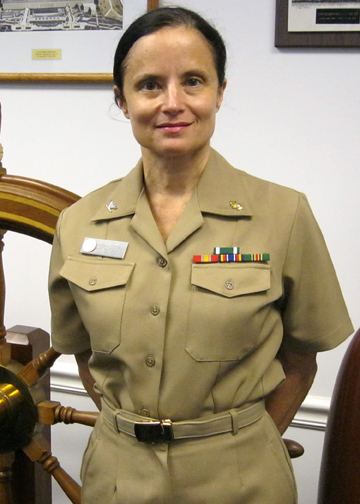In advance of World Malaria Malaria Day, ASTMH asked some of our malaria expert members and colleagues to reflect on the global fight against the disease and to peer into their crystal balls and let us know what might be on the horizon. Other interviews in this series include: Admiral Tim Ziemer of the President's Malaria Initiative, ASTMH Councilor Laurence Slutsker of the CDC, Kent Kester of Sanofi Pasteur, ASTMH President Alan J. Magill and Science Consultant Jessica Taaffe.
 Judith E. Epstein, MD, CAPT MC USN, Clinical Director, Malaria Vaccine Development Program at the Naval Medical Research Center
Judith E. Epstein, MD, CAPT MC USN, Clinical Director, Malaria Vaccine Development Program at the Naval Medical Research Center
Why are you drawn to malaria research?
I first became interested in working on malaria nearly 30 years ago while taking a first year course in parasitology in medical school. I recall being fascinated by the view of malaria parasites under the microscope. The study of infectious diseases that primarily impact the developing world seemed to me like a great entryway into international medicine. I was amazed to learn that this disease, which is not part of our everyday experience in the United States, has such a devastating impact worldwide. According to the most recent estimates, found on the World Health Organization website, there were about 207 million cases of malaria in 2012 and an estimated 627,000 deaths. Most deaths occur among children living in Africa with about one child dying every minute from malaria. Meanwhile, malaria continues to pose a significant threat to our warfighters deployed in malaria endemic area. The chance to work on a vaccine which might help to stem the tide of this disease has been the driving force for me. What started out as a simple medical school interest has become a passion.
As we approach World Malaria Day, what is the biggest challenge with this disease?
I think that the biggest challenge lies mobilizing a successful malaria vaccine. As aptly expressed in an editorial in The Lancet back in April 2010 (Volume 375, Issue 9724, Page 1407), "What is still needed is the only tool that has ever truly conquered any infectious disease: an effective and affordable vaccine."
Where do you see the most promise?
I think that the greatest promise lies in the results recently obtained with the testing of the live, attenuated whole parasite vaccine, Sanaria’s PfSPZ Vaccine. Results of a clinical trial that took place at the Vaccine Research Center, NIAID (detailed by Seder et al in Science Sept 20th 341: 1359-65) in collaboration with the Naval Medical Research Center (NMRC) and the Walter Reed Army Institute of Research demonstrated efficacy of 100% against controlled human malaria infection (CHMI) in subjects who received the highest dose of the vaccine. We at NMRC remain closely involved in the testing and development of this vaccine. Such a vaccine, which could prevent both infection and disease, would be optimal for our troops deployed abroad as well as the millions of people living under the daily threat of this disease.